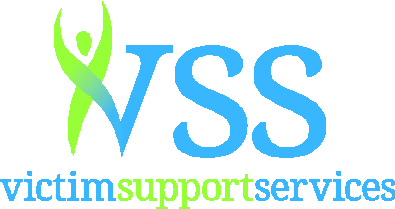Community Education
From Surviving to Thriving: VSS Guidance After a Crime
In this workshop, VSS hosts a one-hour presentation on the services and resources we can provide to victims after a crime has occurred. This can be held in-person or virtually, and is open to both community members and professionals as it is catered toward the target audience.
Identity Theft: What to do after You’ve become a Victim
Once you have been a victim of identity theft the recovery process can take years. This class assist participants in understanding the complexities of I.D theft and fraud and the steps to recover financially and emotionally.
Personal Safety after a Crime
Once someone has been victimized, their worldview and sense of personal safety is changed forever. This class offers participants practical ways to increase personal safety after they have experienced victimization.
Understanding Your Victim Rights
Once a crime has been committed against you and you enter the criminal justice process, it can be overwhelming to try and understand exactly what your rights are. All victims have fundamental rights in the criminal justice process.
This class provides a foundation for understanding your rights, how victim advocates can assist with affirming those rights in the court process, and how you can participate in a system designed to also protect the rights of the accused. This class does not provide any legal advice.
The Criminal Justice System for Victims
After a crime has been committed and a suspect has been apprehended, victims may be thrust in to a very complex, lengthy process they are unfamiliar with, overwhelming them.
This basic class will help victims understand the criminal justice process, the order in which hearings happen, how a victim advocate can help, what to expect during a trial, and a rundown of terms that are common in the criminal justice process. This class does not provide any legal advice.
Hearings 101
During the criminal justice process, a number of hearings take place, many closely tied to victim rights. It is important to understand what the goal is of each of these kinds of hearings and how victims fit in to the process.
This class will give a brief overview of each of the kinds of hearings involved in an active case and how victims can fit in to the process as a whole. This class does not provide any legal advice.
Victim Impact Statements
One of the most important rights victims have is to present a statement to the court at any hearing where a suspect in custody has the potential to be released, and at sentencing once the criminal process is done. Victim Impact Statements are meant to inform the court on how the offenders actions have adversely affected the victim, giving the court additional information needed to make a weighted decision on sentencing.
This class will assist victims in understanding how to outline the effects of the crime, organize them in to a coherent statement, and write the statement out to present to the court. This class does not provide any legal advice.
Restitution
Once the criminal justice process is almost complete, victims are commonly asked for information and documentation on how the crime has financially impacted them. This can be a confusing process and victim advocates can help with this.
This class will explain in detail what restitution is, what expenses qualify, how to respond to the court request, and what documentation is needed. This class does not provide any legal advice.
The Civil Legal System
Victims often want information on the civil legal system as they are contemplating bringing suit against the perpetrator of the crime.
This class will explain the basics of the civil legal system, how to find an attorney, and how the civil legal system differs from the criminal system. However, this class does not provide any legal advice.
